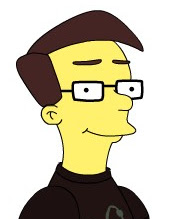 Famed scientist, science fiction author, and legendary technology prognosticator Sir Arthur C. Clarke has died at his home in Sri Lanka aged 91.
Famed scientist, science fiction author, and legendary technology prognosticator Sir Arthur C. Clarke has died at his home in Sri Lanka aged 91.Clarke's status as a science fiction icon was cemented when his 1948 short story "The Sentinel" was adapted for the silver screen as Stanley Kubrick's "2001: A Space Odyssey". He went on to write literally hundreds of short stories, novels, and essays, many of which deal with similar "cosmic" themes.
As a scientist, he was involved in early work in radio and radar and a 1945 paper described a space-based communication network very similar to today's geosynchronous satellites. In acknowledgment of his prediction, the orbit of these satellites is now known as the "Clarke Belt". He has also written extensively about space and space travel, anticipating such ideas as alien probes, possibilities for faster-than-light travel, and space elevators. He was made CBE in 1989 and knighted in 2001. He is also well known for formulating what has become known as "Clarke's law": Any sufficiently advanced technology is indistinguishable from magic.
Clarke has long been one of my very favorite writers of what's known as "hard" Science Fiction. That is, SF in which there is actual science, no matter how speculative, involved. Novels like "Rendezvous for Rama", "Childhood's End", and "The Songs of Distant Earth" will remain among some of the best SF every produced. He was also a distinguished member of the British Humanist Association and a laureate of the Academy of Humanism. I knew that he was getting on in years, but somehow that doesn't make the loss any easier. Goodbye old friend...
Links: BBC Obituary






No comments:
Post a Comment